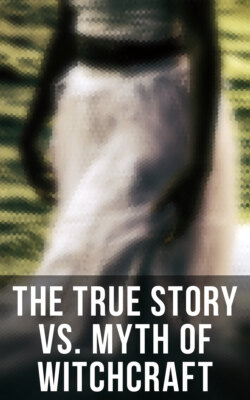Читать книгу The True Story vs. Myth of Witchcraft - William Godwin - Страница 198
На сайте Литреса книга снята с продажи.
Astrology.
ОглавлениеThe supposed science of astrology is of a nature less tremendous, and less appalling to the imagination, than the commerce with devils and evil spirits, or the raising of the dead from the peace of the tomb to effect certain magical operations, or to instruct the living as to the events that are speedily to befal them. Yet it is well worthy of attention in a work of this sort, if for no other reason, because it has prevailed in almost all nations and ages of the world, and has been assiduously cultivated by men, frequently of great talent, and who were otherwise distinguished for the soundness of their reasoning powers, and for the steadiness and perseverance of their application to the pursuits in which they engaged.
The whole of the question was built upon the supposed necessary connection of certain aspects and conjunctions or oppositions of the stars and heavenly bodies, with the events of the world and the characters and actions of men. The human mind has ever confessed an anxiety to pry into the future, and to deal in omens and prophetic suggestions, and, certain coincidences having occurred however fortuitously, to deduce from them rules and maxims upon which to build an anticipation of things to come.
Add to which, it is flattering to the pride of man, to suppose all nature concerned with and interested in what is of importance to ourselves. Of this we have an early example in the song of Deborah in the Old Testament, where, in a fit of pious fervour and exaltation, the poet exclaims, “They fought from heaven; the stars in their courses fought against Sisera.” 223
The general belief in astrology had a memorable effect on the history of the human mind. All men in the first instance have an intuitive feeling of freedom in the acts they perform, and of consequence of praise or blame due to them in just proportion to the integrity or baseness of the motives by which they are actuated. This is in reality the most precious endowment of man. Hence it comes that the good man feels a pride and self-complacency in acts of virtue, takes credit to himself for the independence of his mind, and is conscious of the worth and honour to which he feels that he has a rightful claim. But, if all our acts are predetermined by something out of ourselves, if, however virtuous and honourable are our dispositions, we are overruled by our stars, and compelled to the acts, which, left to ourselves, we should most resolutely disapprove, our condition becomes slavery, and we are left in a state the most abject and hopeless. And, though our situation in this respect is merely imaginary, it does not the less fail to have very pernicious results to our characters. Men, so far as they are believers in astrology, look to the stars, and not to themselves, for an account of what they shall do, and resign themselves to the omnipotence of a fate which they feel it in vain to resist. Of consequence, a belief in astrology has the most unfavourable tendency as to the morality of man; and, were it not that the sense of the liberty of our actions is so strong that all the reasonings in the world cannot subvert it, there would be a fatal close to all human dignity and all human virtue.
